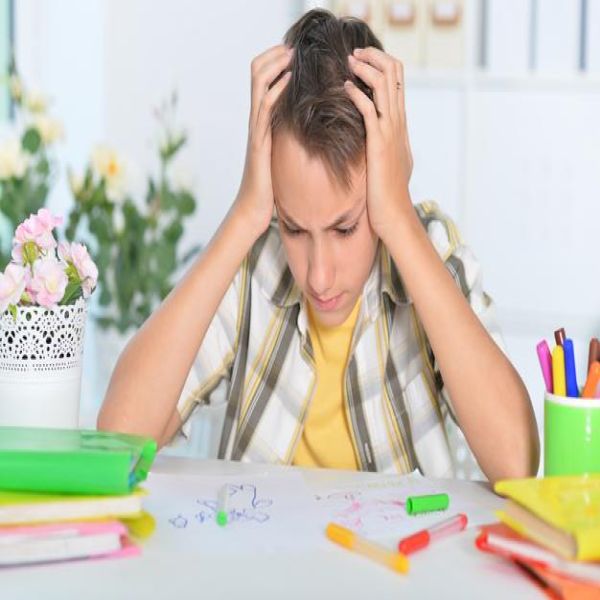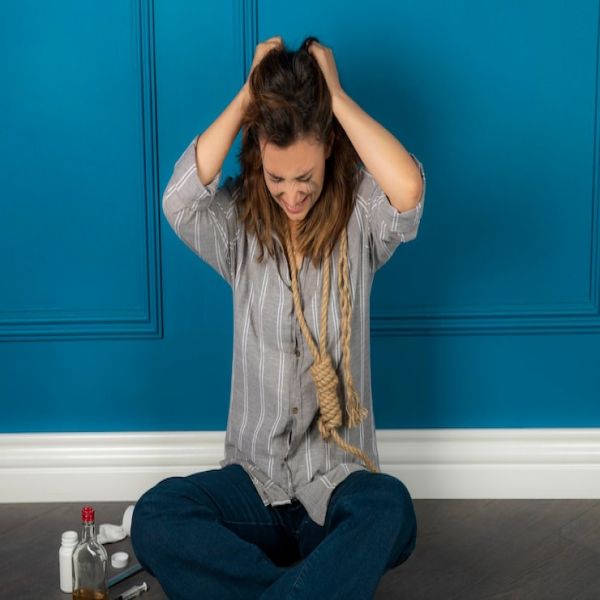![]()
Homeopathy
Homeopathy is one of the most sought after system of
alternative and complementary medicine across the globe. It is founded
by Dr. Samuel Hahnemann about two centuries ago.
Homeopathic treatment is primarily based on the principle of “similia similibus
curentur or like cures like”. That is, homeopathic medicines are capable of
producing some symptoms in human body if consumed. Diseases also produce some
symptoms in the human body. In the early days of origin of homeopathy the
similarities between the symptoms of drugs and diseases alone were chosen as
criteria for choosing the drug and address or manage diseases. With the development
in technology and science homeopathy also has incorporated disease diagnosis and
investigative tools such as laboratory investigations, imaging techniques –
ultrasonography, echocardiography, Magnetic resonance imaging [MRI] etc. into
clinical practice.
Homeopathic medicines are chosen taking into account the case history of the patient,
clinical examination findings, Lab &imaging studies findings etc. Homeopathic system
of medicine is a system of medicine which gives much emphasis to individualization
in choosing management protocols.
The “like cures like” principle is mostly misinterpreted as a medicine prescribing
criteria. It is one of the tools for selecting a remedy. Homeopathy has other
fundamental principles as directed by organon of medicine text books to choose
medicine in various states of disease such as acute, chronic, epidemic, pandemic
etc. it is not minimum or single dose in every condition as misinterpreted by
many information sites.
In homeopathy a group of medicines for a clinical condition are chosen in different
evaluation and analysis method using a software or book of repertory. The software
or manually using the book repertory signs & symptoms of the patient are analyzed
to find a group of remedies. In this analysis not only symptoms are analyzed but
also clinical and lab findings are also analyzed using “rubrics” related to each
of them. For example a disease diagnosis [eg: bronchitis] is also included as
rubric for medicine search in the software. Similarly lab findings are also
included after evaluation.
With the advance of scientific knowledge homeopathy also progressed in methodology
of practice to a large extent. Unfortunately these kind of developments are not
shared anywhere on the main web portals.
Homeopathy still progressing in its research endeavors although methodological
contradictions exist between homeopathic modes of prescription based on individualization
and RCT or randomized controlled trials which are more generalized. However, still
there are many case studies, case reports based on lab and imaging findings to
substantiate the action of homeopathic medicines in human body in disease state.
More extensive studies and efforts are needed to document them and include in the data base.
Homeopathy offers treatment for both communicable & non communicable diseases within
its scope & limitations. Homeopathic medications are very effective against viral & bacterial infections.
During the covid pandemic homeopathy has helped many people to tide over the crisis.
In post covid ailments also homeopathy is used effectively. In infections like chikungunya,
dengue, influenza & post chikungunya arthritis, joint pains, post dengue
weakness, hair loss etc. homeopathic medicines have been of great help.
In non- communicable and life style diseases also homeopathy has pivotal role
in reducing the risk factors and preventing complications such as heart attack,
stroke etc. Homeopathy has medications for reducing cholesterol, blood sugar and high blood pressure.
Homeopathy has important role in hormonal disorders also. It is useful in thyroid
disorders, polycystic ovarian syndrome and infertility resulting from various causes.
In back pain, disc bulge, disc herniation, spondylitis homeopathic medicines help
to improve the condition considerably. In gout and high uric acid blood levels
homeopathic medications reduce the uric acid levels and prevent further complications
from uric acid deposition with in the body such as uric acid stones in kidneys.
In respiratory and skin allergies also homeopathy has significant roles in management.
In hair loss cases, homeopathic treatments are begun after assessing the real
cause of hair loss with requisite investigations, lab tests etc. Medicines are
prescribed based on the cause, type and stage of hair loss.
Homeopathic Institutions in India
The National Homoeopathy Research Institute in Mental Health (NHRIMH),
formerly known as Central Research Institute for Homoeopathy, Kottayam; an
Institute under Central Council for Research in Homoeopathy(CCRH), Ministry
of AYUSH, Government of India has been providing quality services to patients
for the past 46 years and conducting clinical research especially in the field of psychiatry.
The Ministry of Ayush was formed on the 9th of November 2014 with a vision of
reviving the profound knowledge of our ancient systems of medicine and ensuring
the optimal development and propagation of the Ayush systems of healthcare. Earlier,
the Department of Indian System of Medicine and Homoeopathy (ISM&H) formed in 1995,
was responsible for the development of these systems. It was then renamed as the
Department of Ayurveda, Yoga, and Naturopathy, Unani, Siddha and Homoeopathy (Ayush)
in November 2003 with focused attention towards education and research in Ayurveda,
Yoga and Naturopathy, Unani, Siddha, and Homoeopathy.
National institute of homoeopathy
was established on 10th December 1975 in Kolkata as an Autonomous Organization
under the Ministry of Health & Family Welfare, Govt. of India. Presently, it is
under the Ministry of AYUSH, Govt. of India. The Institute , affiliated to the West
Bengal University of Health Sciences, presently conducts the degree course in
Homoeopathy viz Bachelor of Homoeopathic Medicine and Surgery [B.H.M.S.] since
1987 and Post - Graduate course i.e. Doctor of Medicine in Homoeopathy [M.D.(Hom.)]
in six subjects viz Organon of Medicine, Repertory, Materia Medica,Practice of
Medicine, Paediatrics and Homoeopathic Pharmacy since 1998-99 onwards.
Today it consists of an Undergraduate and Postgraduate sections with an auditorium
of 800 seating capacity, a hospital having an outpatient dept. and a 100 bedded
inpatients dept. along with investigative facilities. The Institute is functioning
in its own campus measuring about 16 acres of land at Block - GE, Sector - III,
Salt Lake, Kolkata - 700 106, with a total floor space of about 1.8 lakh square
metres with effect from 11.08.1986.
The mission of National Institute of Homoeopathy is to foster excellence in
Homoeopathic Medical Education and Research, to educate and train undergraduate,
post graduate students and research scholars of homoeopathy in accordance with
highest professional standards and ethical values unfettered by the barriers of
nationality, language, culture, plurality, religion and to meet the healthcare
needs of the community through dissemination of knowledge and service. The Research
Wing of the Institute is conducting Clinical Research on various clinical
conditions such as thyroid diseases, psoriasis, spondylitis etc.
National Institute Of Homoeopathy has separate division for Homoeopathy research.
Ethical Committee has been framed in 2013 years for legalizing clinical trials being
conducted in research division. The prime aim of division is to conduct research on
various aspects of Homoeopathy. In present following aspects are prime focuses –
Tonsillitis, degenerative bony diseases, Leucoderma, Thyroid dysfunctions
(Hyperthyroid/Euthyroid) Spondylosis, Psoriasis, cancer.
In the recent past, there is a paradigm shift in the approach from disease
management towards achieving wellness. The AYUSH systems advocate holistic
wellness approach aiming at prevention of diseases and promotion of health and wellbeing.
A decision was taken on 30th Jan, 2019 that at least 12,500 Health and Wellness Centres (HWCs) under
Ayushman Bharat will be upgraded by the Ministry of AYUSH. The Union Cabinet
during its meeting on 20th March, 2020 has approved the proposal to operationalize
these 12,500 AYUSH HWCs through States/UTs in Centrally Sponsored Scheme mode and
under the broad umbrella of National AYUSH Mission (NAM) in a phased manner by 2023-24.
Homeopathic education system in India
There are approximately 243 colleges in India that offer Homeopathy courses, with
over 10,000 students admitted each year. Government and private colleges are among the colleges.
With advancements in medical research and technology, BHMS colleges continued to
update their curriculum to keep pace with modern healthcare practices.
The syllabus encompassed subjects such as anatomy, physiology, pathology,
forensic medicine, social and preventive medicine, gynaecology ,practice of
medicine , surgery, materia medica, homeopathic pharmacy etc.
Integration of traditional and evidence-based approaches helped produce well-rounded
homeopathic practitioners. In response to the digital age, BHMS colleges integrated
technology into their teaching methods. This included e-learning platforms, virtual
classrooms, and online resources, enhancing the learning experience for students.
Admission to BHMS colleges in 2023 still involved qualifying for national
or state-level entrance examinations. These exams evaluated a student’s
aptitude and knowledge in relevant subjects and were a crucial factor in securing
a seat in the desired institution. The mandatory internship program continued
to be an integral part of the BHMS curriculum.During the internship,
students gained practical experience by working under the guidance of experienced
practitioners in homeopathic clinics and hospitals.
Homeopathic medical colleges also emphasized research in homeopathy to contribute
to the growing body of evidence supporting its efficacy. Students were
encouraged to engage in research projects, enabling them to explore and expand
the boundaries of homeopathic medicine. Homeopathy’s holistic approach to
healing, taking into account the patient’s physical, mental, and emotional
well-being, remained a central tenet of BHMS education.
In addition to this, there are many other private homeopathic academies &
organizations of doctors [ IHMA,IIHP,HMAI,IHK etc.] in India for the continued
medical education of homeopathic physicians.
Reference For Further Reading














Telogen effluvium- homeopathic hair loss treatment
Telogen effluvium[TE] is one of the most common causes of diffuse hair loss from the scalp .This type of hair loss can occur from various causes like stress,child birth,surgery,acute infections etc.